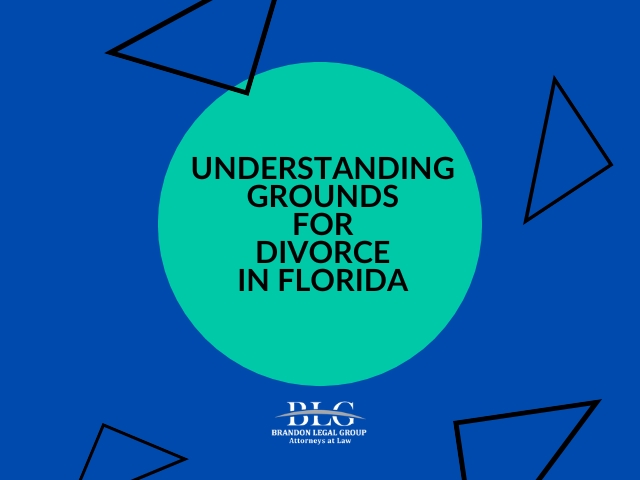The institution of marriage is cherished, and divorce is often a last resort. However, when this inevitable crossroad is reached, it is vital to comprehend the legal aspects surrounding divorce proceedings. In Florida, as with other U.S. states, specific requirements must be met to obtain a divorce, formally known as ‘dissolution of marriage.’ This article delves into what constitutes grounds for a divorce in Florida, the role of a divorce attorney, and some fictional examples for better understanding.
Florida: A No-Fault Divorce State
Florida is a ‘no-fault’ divorce state. This means either spouse can file for a divorce without proving the other spouse did something wrong. There are two primary grounds for divorce in Florida: irreconcilable differences and mental incapacity.
The first, irreconcilable differences, implies that the marriage is irretrievably broken and that the couple can no longer live together as a married entity.
The following is a DRAMATIZATION: NOT AN ACTUAL EVENT: Suppose we consider a fictional couple, Maria and Alex. They have struggled with consistent disagreements, from financial issues to parenting styles. After several attempts at marriage counseling, they have concluded that their differences are too vast, and a harmonious married life seems impossible. Here, the law permits them to file for a divorce under the ground of irreconcilable differences.
The second ground, mental incapacity, is less common and requires that one of the spouses has been mentally incapacitated for at least three years before filing for divorce.
The following is a DRAMATIZATION: NOT AN ACTUAL EVENT: Paul has been declared mentally incapacitated and under professional care for over three years. Linda may file for divorce under this ground, provided she can furnish the required legal and medical documents as evidence.
The Role of a Divorce Attorney
Hiring a divorce attorney in these situations can be immensely beneficial. Legal proceedings often entail a labyrinth of paperwork, deadlines, and procedures that can be daunting for most individuals. An experienced divorce attorney can simplify this process and help avoid common pitfalls.
The following is a DRAMATIZATION, NOT AN ACTUAL EVENT: In Maria and Alex’s case, their divorce may seem straightforward initially. However, issues such as child custody, alimony, and division of assets can complicate matters. A skilled divorce attorney can help negotiate these issues effectively, keeping their client’s best interests at heart. The attorney can advise Maria on her rights as a mother and guide Alex on his financial obligations.
The following is a DRAMATIZATION, NOT AN ACTUAL EVENT: In Linda and Paul’s situation, a divorce attorney could help Linda gather the necessary legal and medical documents to prove Paul’s mental incapacity. Given Paul’s mental state, they can also guide her through the unique challenges she might face during the divorce proceedings.
What’s Involved in Divorce Proceedings?
In Florida, at least one spouse must have resided in the state for six months before filing for a divorce. A Petition for Dissolution of Marriage is filed by one spouse (the petitioner) and served to the other spouse (the respondent). The respondent then has 20 days to answer the petition.
Here’s where a divorce attorney’s expertise is indispensable. They will help their client fill out the necessary paperwork correctly, serve the papers perfectly, and help them respond appropriately if they are on the receiving end of the petition.
Subsequently, a settlement can be reached between the parties regarding the division of assets, child custody, and alimony, or the court can decide on these matters if a mutual agreement isn’t possible. A divorce attorney’s negotiation skills are crucial in this phase. They can protect their client’s rights and the divorce outcome is as favorable as possible.
Methods of Divorce Proceedings
Divorce proceedings can take various forms based on the degree of conflict between the parties, the complexity of the issues involved, and the willingness of the parties to negotiate. Here, we discuss some popular methods of divorce proceedings in Florida: mediation, arbitration, collaborative divorce, and traditional litigation.
Mediation
Mediation is a dispute resolution method involving a neutral third party, a mediator. The mediator helps the parties communicate and negotiate with each other to reach a mutually agreed settlement. Mediation can effectively resolve contentious issues like child custody, alimony, and property division without going to court.
The following is a DRAMATIZATION, NOT AN ACTUAL EVENT: Consider our fictional couple, Maria and Alex. Their disagreements are intense, but they both want to avoid a lengthy court battle for the sake of their children. In this case, a divorce attorney could suggest mediation. Their attorney could prepare them for mediation and help them understand their rights and obligations, making the process smoother and more productive.
Arbitration
In contrast to mediation, arbitration involves a neutral third party who acts more like a private judge and makes a binding decision on the contested issues. While it is similar to a court proceeding, arbitration is less formal and more flexible.
The following is a DRAMATIZATION, NOT AN ACTUAL EVENT: Suppose Maria and Alex can’t agree on the division of marital assets during mediation. They could opt for arbitration, where the arbitrator makes a final, binding decision. Their divorce attorney would present evidence and arguments, similar to a court trial but in a less formal setting.
Collaborative Divorce
Collaborative divorce is a relatively new method requiring both parties and their attorneys to work together to resolve the disputed issues. This method involves open communication and information sharing, aiming to reach an agreement that meets the needs of all parties.
The following is a DRAMATIZATION, NOT AN ACTUAL EVENT: A collaborative divorce may be suitable if Maria and Alex are willing to communicate openly and work together. Their attorneys would facilitate this process, helping them to negotiate effectively and achieve a mutually satisfying agreement.
Traditional Litigation
If the parties can’t agree, traditional litigation might be necessary. This involves going to court and letting a judge decide on divorce matters. It’s typically more adversarial and time-consuming than the other methods.
In situations where Paul’s mental incapacity may make other methods unfeasible, traditional litigation might be the only option for Linda. A divorce attorney would represent her interests in court, present evidence, and argue.
Each method of divorce proceedings has its strengths and is suitable for different circumstances. Whether it’s mediation, arbitration, collaborative divorce, or traditional litigation, having a skilled divorce attorney to guide you through the process is invaluable. The attorney’s expertise can significantly affect the divorce proceedings’ complexity, duration, and outcome, ensuring that your rights and interests are thoroughly protected.
Conclusion
While divorce is never a desirable outcome, understanding its legalities is essential when faced with such a situation. In Florida, you don’t need to prove your spouse’s wrongdoings in Florida to file for divorce. You only confirm that the marriage is irretrievably broken or that your spouse has been mentally incapacitated for at least three years. In both scenarios, the expertise of a divorce attorney is invaluable. They can guide you through the legal maze, help protect your rights, and negotiate the best possible outcome.
